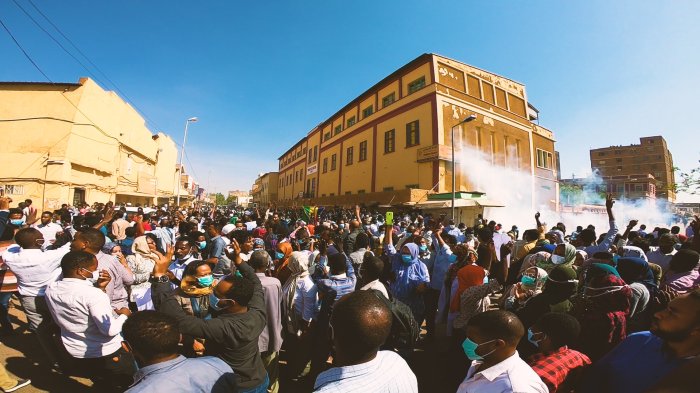This time two years ago, Sudan was in the midst of an unprecedented revolution. Citizens of all ethnicities, religious beliefs and walks of life across the whole country had come together to call for justice, democracy, human rights, and an end to nearly three decades of repression under President Omar al Bashir. An Islamist army officer, al Bashir had seized power from an elected government in 1989, and had enjoyed support from the Muslim Brotherhood movement both inside and outside the country.
After several months of consistent demonstrations which saw the Sudanese people overcome a repressive and heavy-handed response from the government and its security forces, it seemed as though their vision for an inclusive Sudan was finally within touching distance. President al Bashir was arrested in April 2019, and in August a transitional government was appointed to oversee the country’s progression towards democracy, with the transition period scheduled to end in 2022.
While these welcome developments were praised by many as ushering in a new era for Sudan, progress since then has been frustratingly slow.
Human rights violations, including violations of the right to freedom of religion or belief (FoRB), continue to occur on a regular basis, and there is still a need to ensure that justice is served for atrocity crimes committed under the previous regime, and indeed by members of the current government who are alleged to have been complicit in crackdowns on protesters, including the shocking massacre of demonstrators in Khartoum on 3 June 2019.
Continue reading “‘Smoke and mirrors’ in post-revolution Sudan: Lessons from Egypt”



